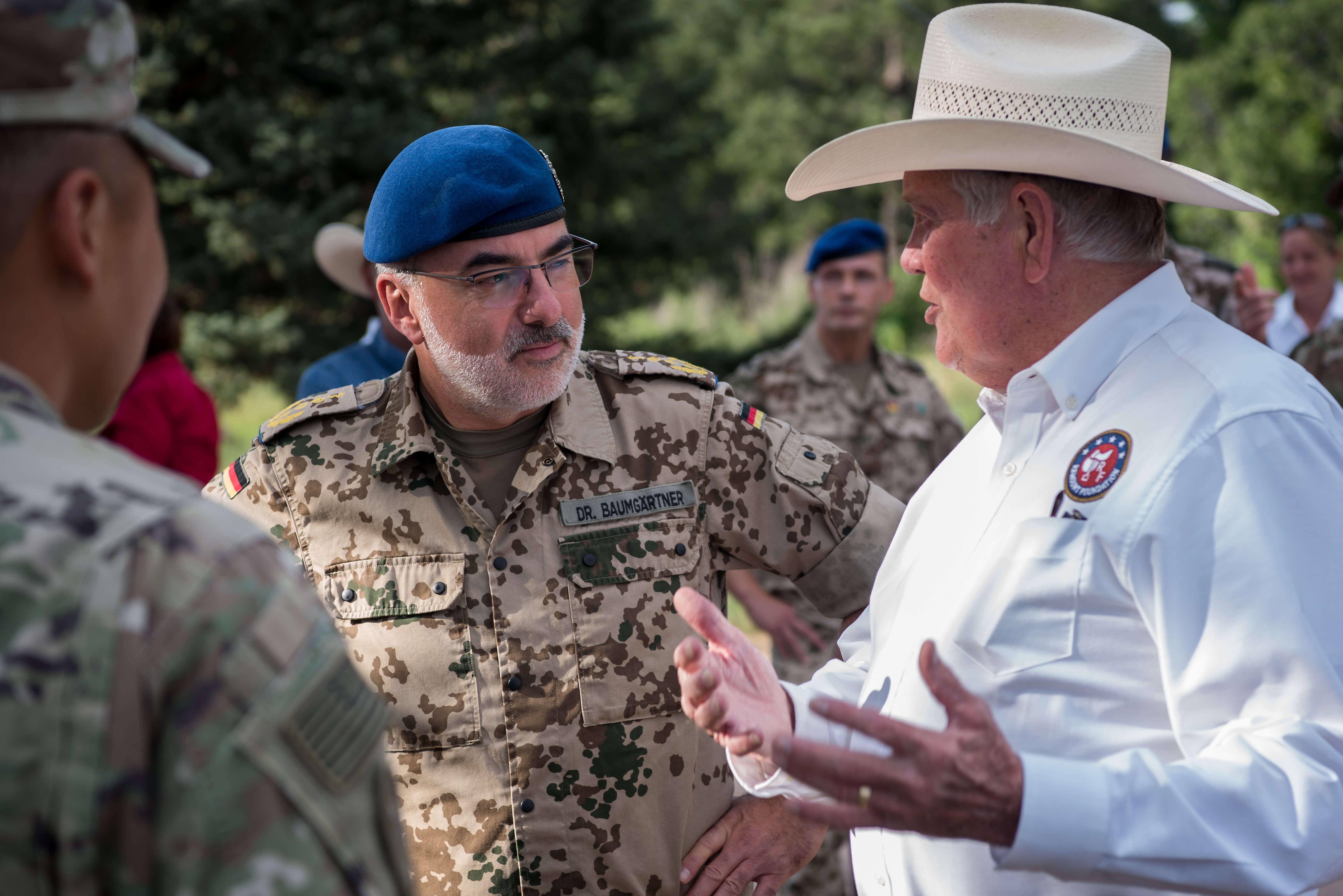German military officials visit Academy equestrian center, see potential in equine therapy model

Story by Janine Dreger, Aug. 22, 2019
U.S. AIR FORCE ACADEMY, Colo. — A delegation of German military health officials visited the Air Force Academy equestrian center to learn about an equine therapy program currently offered by a nonprofit organization to service members, veterans and their families here, Aug. 20.
Equine therapy promotes self-confidence, problem solving, and improved mood through supervised interactions with horses. It has been linked to positive outcomes for a wide range of behavioral health conditions.
“This is really about taking care of warriors and learning how to help them be successful in their lives,” said Col. Christopher Grussendorf, 10th Medical Group commander, during the recent tour.
Alexander Varn is an embedded military psychologist from Germany studying the effectiveness of equine therapy. His report on the program helped spur interest in the visit.
“Some of the patients were wounded physically, some psychologically, and some both,” he said. “The program is diverse and most importantly the time is not limited for the people in need. It takes as long as it takes.”
Varn works with program members like Chris Tanka, a retired Army lieutenant colonel.
Tanka first realized he might be experiencing post-traumatic stress disorder nearly 10 years after completing a tour in Iraq while serving as an Air Force Academy professor.
“I had been sharing war stories in the classroom and afterward another instructor came to me and said, ‘when you’re telling these stories you are not really here, you’re somewhere else,’” he said. “But it was after my retirement that it really started to hit me. I couldn’t sleep at all. I was a ball of anger, and getting worse and worse.”
Tatka started immersion therapy in conjunction with equine therapy. He was skeptical, at first.
“I didn’t believe in any of this; I thought it was all a bit of voodoo,” he said “I didn’t think I would ever be able to work again, but [with this therapy] I have improved enough to start work.”
Tatka was among the program participants speaking to the delegation.
“It’s important that we [focus] on how we can help our wounded soldiers, and we need to be open to new methods,” said Lt. Gen. Ulrich Baumgaertner, surgeon general of the German armed forces.